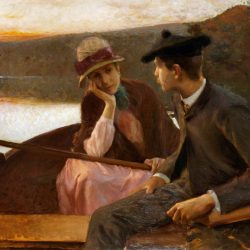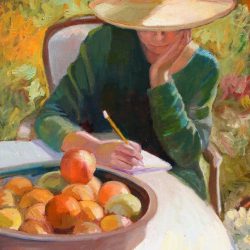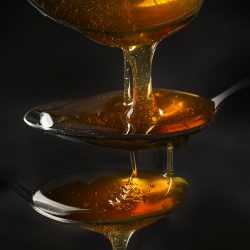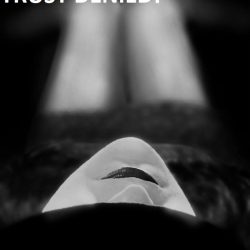- HOME
- MEDIA
- L.Onerva
- Eino Leino
- Eeva-Liisa Manner
- Erään Opon päiväkirja
- Elämänkenttäni
- Elämäni ”viiva”
- Käyttöteoriani – se miten minä ohjaan
- Kulttuuritietoinen ja kansainvälistyvä ohjaus
- Ohjauksen järjestäminen maahanmuuttajakoulutuksessa
- Ohjauksen yhteiskunnallinen viitekehys
- Ohjaukäsite
- Oma opiskeluorientaatio
- Opiskelijoiden yksilöllisyys ohjauksessa
- EETTISET KYSYMYKSET
- Psykososiaalisen kehityksen teoria
- Suhteeni erilaisuuteen ja tehtäväni opinto-ohjaajana
- Opinto-ohjauksen ja erityisopetuksen yhtäläisyyksiä ja eroja
- Kehitykseni opinto-ohjaajana
- Maahanmuuttajan uraohjaus
- Maahanmuuttajien ohjaus ja neuvonta: kuka, mitä, miten?
- Ohjauksen tulevaisuus
- Elämänkenttäni
- Mariana Marin
- Claudiu Komartin
- Mariana Codrut
- Roland Erb
- Romanian poetry
- STORIES
- READING POETRY
- translated Finnish-Romanian
- translated English-Finnish
- translated French-Finnish
- translated Romanian-English
- translated Spanish-English
- translated German-English
- translated Finnish-English
- translated English-Romanian
- translated French-Romanian
- translated French-English
- translated Romanian-French
- translated Romanian-German
classic poetry
AFFIRMATION / AFIRMATIE
POSTED IN classic poetry, translated English-Romanian November 1, 2021

AFFIRMATION / AFIRMATIETo grow old is to lose everything.
Aging, everybody knows it.
Even when we are young,
we glimpse it sometimes, and nod our heads
when a grandfather dies.
Then we row for years on the midsummer
pond, ignorant and content. But a marriage,
that began without harm, scatters
into debris on the shore,
and a friend from school drops
cold on a rocky strand.
If a new love carries us
past middle age, our wife will die
at her strongest and most beautiful.
New women come and go. All go.
The pretty lover who announces
that she is temporary
is temporary. The bold woman,
middle-aged against our old age,
sinks under an anxiety she cannot withstand.
Another friend of decades estranges himself
in words that pollute thirty years.
Let us stifle under mud at the pond’s edge
and affirm that it is fitting
and delicious to lose everything.
Donald Hall
………………..
AFIRMATIEA îmbătrâni înseamnă a pierde totul.
Îmbătrânirea, toată lumea o știe.
Chiar și când suntem tineri,
o intrezărim uneori și dam din cap
când moare un bunic.
Apoi, vâslim ani de zile pe iazul miezului verii
ignoranti și multumiti. Dar o căsnicie,
începuta fără răutate, se risipeste
în resturi pe tarm,
iar un prieten din școală cade
rece pe un mal stâncos.
Dacă o nouă iubire ne poarta
dincolo de varsta mijlocie, soția va muri
cand se va simti cea mai puternică și mai frumoasă.
Femei noi vin și pleacă. Toate pleaca.
Iubita draguta care anunta
că este vremelnica
este vremelnica. Femeia îndrăzneață,
de vârstă mijlocie fata de bătrânețea noastra,
se scufundă intr-o anxietate pe care n-o poate suporta.
Un alt prieten de zeci de ani se înstrăinează
în cuvinte care poluează treizeci de ani.
Să ne înăbușim sub noroi la marginea iazului
și sa afirmăm că este
potrivit și delicios să pierdem totul.
traducere, Maria Magdalena Biela
SI TÚ ME OLVIDAS / DACĂ MĂ VEI UITA / IF YOU FORGET ME
POSTED IN classic poetry, translated Spanish-English, translated Spanish-Romanian September 26, 2021
SI TÚ ME OLVIDAS / DACĂ MĂ VEI UITA / IF YOU FORGET ME
Quiero que sepas
una cosa.Tú sabes cómo es esto:
si miro
la luna de cristal, la rama roja
del lento otoño en mi ventana,
si toco
junto al fuego
la impalpable ceniza
o el arrugado cuerpo de la leña,
todo me lleva a ti,
como si todo lo que existe,
aromas, luz, metales,
fueran pequeños barcos que navegan
hacia las islas tuyas que me aguardan.Ahora bien,
si poco a poco dejas de quererme
dejaré de quererte poco a poco.Si de pronto
me olvidas
no me busques,
que ya te habré olvidado.Si consideras largo y loco
el viento de banderas
que pasa por mi vida
y te decides
a dejarme a la orilla
del corazón en que tengo raíces,
piensa
que en ese día,
a esa hora
levantaré los brazos
y saldrán mis raíces
a buscar otra tierra.Pero
si cada día,
cada hora
sientes que a mí estás destinada
con dulzura implacable.
Si cada día sube
una flor a tus labios a buscarme,
ay amor mío, ay mía,
en mí todo ese fuego se repite,
en mí nada se apaga ni se olvida,
mi amor se nutre de tu amor, amada,
y mientras vivas estará en tus brazos
sin salir de los míos.
PABLO NERUDA
………………………
DACA MA VEI UITA
Vreau să știi
un lucru.Știi cum este e:
dacă mă uit
luna de cristal, ramura roșie
a toamnei lente la fereastra mea,
dacă ating
lângă foc
cenușa impalpabilă
sau corpul ridat al lemnului,
totul mă duce spre tine,
de parcă tot ce există,
arome, lumina, metale,
au fost barci mici care navigheaza
spre insulele tale care mă așteaptă.In orice caz,
dacă încetul cu încetul încetezi să mă mai iubești
Voi înceta să te iubesc puțin câte puțin.Dacă brusc
m-ai uitat
nu ma cauta,
căci te voi fi uitat deja.Dacă tu consideri lung și nebun
vântul steagurilor
ce trece în viața mea
si hotarasti
să mă lasi pe malul
inimii în care am rădăcini,
tine minte
că în acea zi,
în acel moment
imi voi ridica brațele
iar rădăcinile mele vor porni
să caute un alt pământ.Dar
dacă în fiecare zi,
in fiecare ora
simți că ești destinată mie
cu dulceață implacabilă.
dacă-n fiecare zi o floare urca
pana la buzele tale să mă caute,
ah, iubirea mea, a mea,
în mine tot acel foc se repetă,
nimic din mine nu-i stins nici uitat,
iubirea-mi se hrănește din a ta, iubito,
și-atat cat vei trai va fi-n brațele tale
făr-a le parasi pe-ale mele.…………………………………..
IF YOU FORGET ME
I want you to know
one thing.You know how it is:
if I look
at the crystal moon, at the red branch
of the slow autumn at my window,
if I touch
by the fire
the impalpable ash
or the wrinkled body of the wood,
everything leads me to you,
as if everything that exists,
aromas, light, metals,
were little boats that sail
toward those isles of yours that await me.Well, now,
if little by little you stop loving me
I’ll stop loving you little by little.If suddenly
you forget me
don’t look for me,
for I’ll have already forgotten you.If you consider long and mad,
the wind of banners
that passes through my life,
and you decide
to leave me at the shore
of the heart where I have roots,
remember
that on that day,
at that hour,
I shall raise my arms
and my roots will set off
to seek another land.But
if each day,
each hour,
you feel that you are destined for me
with implacable sweetness,
if each day a flower
rises to your lips to look for me,
ah my love, ah my own,
in me all that fire repeats itself,
in me nothing is extinguished or forgotten,
my love feeds on your love, beloved,
and as long as you live it will be in your arms
without leaving mine.
translation, Maria Magdalena Biela
Cantecul nebunului / The fool’s song
POSTED IN classic poetry, translated Romanian-English August 26, 2021
Cantecul nebunului / The fool’s songEi sunt cuminti…
Eu sunt nebun…
Dar cum Eu sunt ce-am fost mereu —
Poate ca ce-l cuminte-s Eu —
Desi de cite ori le-o spun,
Eu pentru Ei… sunt tot nebun…Ei mă urasc ca nu-s ca Ei…
Eu îi iubesc ca nu-s ca Mine…
Ei beau
Si mint fără rusine —
Si-n ochii prienenilor mei
Trec drept nebun.. ca nu-s ca Ei…Lor nu le place amanta Mea…
Mie nu-mi place amanta Lor…
Ei vad cu ochii tuturor
Femeia…
Eu n-o pot vedea
Decât cu-ai mei —
Amanta Mea…Dar cum din Ei toti numai Eu
Nu sunt ca Ei,
Am să mă duc
De voia mea la balamuc —
Si fiindca nu-mi va parea rău,
Cumintele voi fi tot Eu!…ION MINULESCU
………………………………
The fool’s song
They are the wise…
I am the fool…
But since I’m who I’ve always been –
Maybe the wise one’s me therein-
Though everytime I’d tell them full
For them I’m still and always fool.They hate me for like them I’m not…
I love them for they’re not like me…
They drink
And then lie shamelessly —
And in the eyes of my friends’ lot
I’m still fool… for like them I’m not…My lover they don’t like at all…
I do not like their lover either…
With everyone’s eyes they see her
The woman…
I can’t see her soul
Except with my own eyes
My all…But since of them all only I
am not like them,
I’ll go tranquille
to madhouse of my own free will–
And since I won’t be sorry, aye,
The wise one will be still me..I…
Translation, Maria Magdalena Biela
Stjärnorna / The stars / Stelele
POSTED IN classic poetry, translated Finnish-English May 22, 2021
Stjärnorna / The stars / SteleleNär natten kommer
står jag på trappan och lyssnar,
stjärnorna svärma i trädgården
och jag står ute i mörkret.
Hör, en stjärna föll med en klang!
Gå icke ut i gräset med bara fötter;
min trädgård är full av skärvor.Edith Södergran
—————————————
The stars
When night comes
I stand on the stairs and listen,
the stars swarm in the garden
and I’m standing out in the dark.
Listen, a star fell with a sound!
Do not go out into the grass barefoot;
my garden is full of shards.—————————————-
Stelele
Cand noaptea vine
Stau pe scări și ascult,
stelele roiesc în grădină
și stau în evidență în întuneric.
Ascultă, o stea a căzut cu un sunet!
Nu ieși în iarbă desculț;
grădina mea este plină de cioburi.
Translated by Maria Magdalena Biela
Svart eller vitt / Black or white / Negru sau alb
POSTED IN classic poetry, translated Finnish-English May 22, 2021
Svart eller vitt / Black or white / Negru sau albFloderna löpa under broarna,
blommorna lysa vid vägarna,
skogarna böja sig susande till marken.
För mig är intet mera högt eller lågt,
svart eller vitt,
sen jag har sett en vitklädd kvinna
i min älskades arm.EDITH SÖDERGRAN
———————————————
Black or white
The rivers run under the bridges,
the flowers shine by the roads,
the forests bend whizzing to the ground.
To me nothing is higher or lower,
black or white,
since I’ve seen a woman in white
in the arms of my beloved.———————————————
Negru sau alb
Râurile trec pe sub poduri,
florile strălucesc pe drumuri,
pădurile se îndoaie vâjâind la pământ.
Pentru mine nimic nu este mai mare sau mai mic,
negru sau alb,
de când am văzut o femeie în alb
în brațele iubitului meu.Translated by Maria Magdalena Biela
El canto de la miel / Cântecul mierii / The song of honey
POSTED IN classic poetry, translated Spanish-English, translated Spanish-Romanian May 3, 2021
El canto de la miel / Cântecul mierii / The song of honey
La miel es la palabra de Cristo,
el oro derretido de su amor.
El más allá del néctar,
la momia de la luz del paraíso.La colmena es una estrella casta,
pozo de ámbar que alimenta el ritmo
de las abejas. Seno de los campos
tembloroso de aromas y zumbidos.La miel es la epopeya del amor,
la materialidad de lo infinito.
Alma y sangre doliente de las flores
condensada a través de otro espíritu.(Así la miel del hombre es la poesía
que mana de su pecho dolorido,
de un panal con la cera del recuerdo
formado por la abeja de lo íntimo)La miel es la bucólica lejana
del pastor, la dulzaina y el olivo,
hermana de la leche y las bellotas,
reinas supremas del dorado siglo.La miel es como el sol de la mañana,
tiene toda la gracia del estío
y la frescura vieja del otoño.
Es la hoja marchita y es el trigo.¡Oh divino licor de la humildad,
sereno como un verso primitivo!La armonía hecha carne tú eres,
el resumen genial de lo lírico.
En ti duerme la melancolía,
el secreto del beso y del grito.Dulcísima. Dulce. Este es tu adjetivo.
Dulce como los vientres de las hembras.
Dulce como los ojos de los niños.
Dulce como las sombras de la noche.
Dulce como una voz. O como un lirio.Para el que lleva la pena y la lira,
eres sol que ilumina el camino.
Equivales a todas las bellezas,
al color, a la luz, a los sonidos.¡Oh! Divino licor de la esperanza,
donde a la perfección del equilibrio
llegan alma y materia en unidad
como en la hostia cuerpo y luz de Cristo.Y el alma superior es de las flores,
¡Oh licor que esas almas has unido!
El que te gusta no sabe que traga
un resumen dorado del lirismo.
Federico García Lorca
………………………………
Cântecul mierii
Mierea este cuvântul lui Hristos,
aurul topit al iubirii sale.
Nectarul de dincolo,
mumia luminii paradisului.Stupul este o stea castă,
fântână de chihlimbar ce hraneste ritmul
albinelor. Sânul câmpurilor
tremurând de arome și zumzet.Mierea este epopeea iubirii,
materialitatea infinitului.
Suflet și sânge dureros al florilor
condensat printr-un alt spirit.(Deci mierea omului este poezia
care curge din pieptul sau dureros,
al unui fagure cu ceara memoriei
formata de albina intimitatii)Mierea este bucolica îndepărtată
a ciobanului, a fluierului și măslinului,
sora laptelui și a ghindelor,
regine supreme ale secolului de aur.Mierea este ca soarele dimineții
are toată gratia verii
și vechea prospețime a toamnei.
Este frunza ofilită și grâul.¡Oh, licoare divina a smereniei,
senina ca un vers primitiv!Armonia devenita carne ești tu,
rezumatul genial al liricii.
Melancolia doarme în tine,
secretul sărutului și al plânsului.Cea mai dulce. Dulce. Acesta ti-e adjectivul.
Dulce ca pântecele femeilor.
Dulce ca ochii copiilor.
Dulce ca umbrele nopții.
Dulce ca o voce. Sau ca un crin.Pentru cel care poartă durerea și lira,
tu ești soarele care luminează calea.
Egalezi toate frumusețile,
coloarea, lumina, sunetele.¡Oh! Licoare divina a speranței
unde, spre perfecțiunea echilibrului
sufletul și materia devin una precum
in cuminecatura trupul și lumina lui Hristos.Și sufletul superior este al florilor,
¡Oh, licoare ce-ai unit acele suflete!
Cel care te place nu știe ca înghite
esenta de aur a lirismului.
………………………………..
The song of honey
Honey is the word of Christ,
the molten gold of his love.
The beyond of nectar,
the mummy of the light of paradise.The hive is a chaste star,
amber fountain that feeds the rhythm
of bees. The bosom of fields
trembling with aromas and hum.Honey is the epic of love,
materiality of the infinite.
soul and painful blood of flowers
condensed through another spirit.(So honey of man is poetry
that flows from his aching chest,
from a honeycomb with the wax of memory
shaped by the intimate bee)Honey is the distant bucolic
of the shepherd, the whistle and olive tree,
sister of milk and acorns,
supreme queens of the golden age.Honey is like the morning sun
with all the graces of summertime
and the old freshness of autumn.
It is withered leaf and it is the wheat.Oh, divine liquor of humility,
serene as a primitive verse!Harmony that became flesh you are,
the inspired summary of the lyrics.
Melancholy sleeps in you,
the secret of the kiss and shout.Sweetest. Sweet. This is your adjective.
Sweet as the belly of women.
Sweet as the eyes of children.
Sweet as the shadows of the night.
Sweet like a voice. Or like a lilly.For the one who bears the pain and the lyre,
you are the sun that lights the way.
You equal all the beauties,
to the color, the light, sounds.Oh! Divine liqueur of hope
with the perfection of balance
soul and matter like in the holy bread,
body and light of Christ.And the higher soul is of flowers,
Oh, liquor that those souls you have joined!
He who tastes you doesn’t know that he swallows
the golden essence of lyricism.Translated by Maria Magdalena Biela
WE GROW ACCUSTOMED TO THE DARK / NE-OBISNUIM CU BEZNA
POSTED IN classic poetry, translated English-Romanian April 11, 2021
WE GROW ACCUSTOMED TO THE DARK / NE-OBISNUIM CU BEZNAWe grow accustomed to the Dark —
When Light is put away —
As when the Neighbor holds the Lamp
To witness her Good bye —
A Moment — We Uncertain step
For newness of the night —
Then — fit our Vision to the Dark —
And meet the Road — erect —
And so of larger — Darknesses —
Those Evenings of the Brain —
When not a Moon disclose a sign —
Or Star — come out — within —
The Bravest — grope a little —
And sometimes hit a Tree
Directly in the Forehead —
But as they learn to see —
Either the Darkness alters —
Or something in the sight
Adjusts itself to Midnight —
And Life steps almost straight.EMILY DICKINSON
—————————————Ne-obisnuim cu Bezna –
Ne-obisnuim cu Bezna –
Cand lumina dispare –
Precum Vecinul tine Lampa
Sa vad-a ei Plecare –
Intai – pasim nesigur
Caci noua-i Noaptea-acum –
Apoi – cu Bezna potriviti –
Drepti – o pornim la drum –
Si tot mai larga – Bezna –
Ale Mintii Inserari –
Cand nici o Luna semn nu da –
Nici Stea – nu luce-n zari –
Cei mai temeri – bajbaie –
Si-ades de-un Copac dand-
Direct in Frunte sunt loviti –
Cand vazul invatand –
Ori Bezna se dizolva –
Ori a mintii lumina
Cu Bezna se imbina –
Si-astfel Viata se-anina –
In romaneste, Maria Magdalena Biela
DACA TU AI DISPAREA / IF YOU WERE TO DISAPPEAR
POSTED IN classic poetry, translated Romanian-English April 6, 2021
DACA TU AI DISPAREA / IF YOU WERE TO DISAPPEAR
Dacă tu ai dispărea
Într-o noapte oarecare
Dulcea mea, amara mea
Aş pleca nebun pe mare.
Cu un sac întreg de lut
Şi-o spinare de nuiele
Să te fac de la-nceput
Cu puterea mâinii mele.
Lucru lung şi monoton
Să te înviez, femeie,
Eu, bolnav Hyperion
Hai şi umblă , Galatee !
Dacă tu ai dispărea
Fi-ţi-ar moartea numai viaţă
Dulcea mea, amara mea
Aş pleca în ţări de gheaţă.
Să te fac din ţurţuri reci
Să te-mbrac în promoroacă
Şi apoi să poţi să pleci
Orişiunde o să-ţi placă…
De-ai cădea într-adevăr
În momentul marii frângeri
Aş veni la tine-n cer
Să te recompun din îngeri.
Şi pe urmă aş pleca
Umilit şi iluzoriu
Unde este casa mea
O mansardă-n purgatoriu.
Dacă tu ai dispărea
Şi din râsu-mi, şi din plânsu-mi
Te-aş găsi în sinea mea
Te-aş zidi din mine însumi!Adrian paunescu
…………………………..If you were to disappear
If you were to disappear
One night, matters not, you see
Oh my sweet and bitter dear
I’d go crazy on the sea.
With a bag of molding clay
And a full back of fine twigs
to make you from scratch I may
With the power of my wings.
Long and monotonous toil
just to resurrect you, woman,
I, Pygmalion in turmoil
Galatea, once more human!
If you were to disappear
Full of life your death may be,
Oh, my sweet and bitter dear
To the lands of ice I’d flee.
From cold icicles to make you
Cover you in frost carefree
Then do what you want to do
and be who you want to be.
If indeed you’d fall from blessings
At the time of great tearing
I would come to you in heavens
And of angels make your being.
Then would be my time to leave
Humbled deeply and dramatic
Back where is my house, to grieve
In the purgatory – attic.
If you were to disappear
From my laughing, from my crying
Within me I’d find you, dear
From myself I’d build you sighing.English version, Maria Magdalena Biela
Ții minte focul… / Do you recall the fire …
POSTED IN classic poetry, translated Romanian-English April 6, 2021
Ții minte focul… / Do you recall the fire …Ții minte focul, chinul, primăvara,
Tot viscolul aprins ce bântuise?
El ne adunase, el ne învrăjbise,
El ne mâna, învolburându-și para.Dar de pe-atunci, când nu se potolise
Furtuna vârstei, cea dintâi, amara,
Când tinereții-i mai duceam povară,
Noi încă ne uneam prin alte vise.Și dacă azi nimic nu ne desface,
Și trecem în deplina-mbrățișare,
E că-mpreună nu aflarăm pace,Ci căutarăm focu-ncins în zare,
Și rostul lumii care se preface,
Și-al nostru, celor trecători sub soare.Maria Banus
………………………………………..
Do you recall the fire …
Do you recall the fire, the torment, the spring,
All kindled blizzard haunting us with blame
It put together us, also discord to bring
It drove us, swirling its flame.Since then, when yet it did not subside
The storm of age, the first and bitter one
When yet we were carrying the youth tide
We still were one in all that dreams begun.And if today nothing can break us ever,
And we could go into the full embrace,
It’s because we didn’t find peace together,But we sought fire in the horizon’s lace,
The purpose of the changing world forever,
And ours, those passing under sun’s pace.English version, Maria Magdalena Biela
CANTEC DE ADORMIT GENUNCHII / LULLABY FOR THE KNEES
POSTED IN classic poetry, translated Romanian-English April 5, 2021
CANTEC DE ADORMIT GENUNCHII / LULLABY FOR THE KNEES
Sa nu tipati, genunchii mei.
Drum cu ferigi de nopti, de ploaie.
Genunchi de fier cum va îndoaie?
Va mân spre el ca pe doi miei.Pe drumul negurii va-mping.
Va vor lua poate între ei
genunchi ce strâng, zvâcnind si grei,
ca noptile de astrahan.
Si licurici de pasi se sting.Sa nu tipati, genunchii mei.
MARIA BANUS……………………………….
Lullaby for the knees
Do not scream, my beloved knees.
Path filled with ferns of nights, of rain.
The iron knees ‘ll bend you in pain?
To him I guide you, lambs of ease.
I push you on the path of mist.You will be taken hard, in tease
by other knees with throb and squeeze,
like darkened nights of astrakhan.
And firefly steps don’t persist.Do not scream, my beloved knees.
English version, Maria Magdalena Biela

Copyright © 2025 by Magdalena Biela. All rights reserved.








